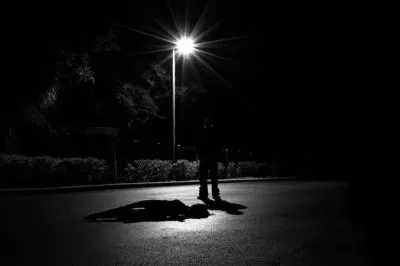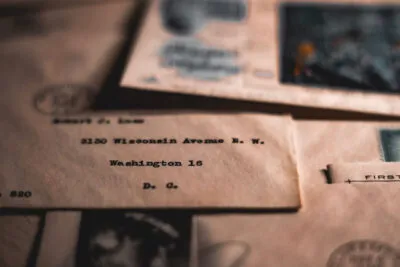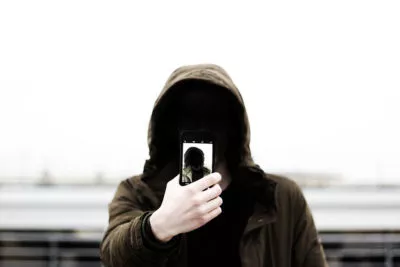
- Originally Published on July 22, 2024
District of Columbia Revenge Porn Laws Explained
Having your intimate images shared online without consent can be soul-crushing. At Minc Law, we understand you may feel overwhelmed, afraid and confused. You may be wondering if you have any legal recourse. In this article, I’ll walk you through what you need to know about DC’s revenge porn law. We’ll cover what actions are illegal, potential criminal and civil penalties and most importantly – how to get justice and begin healing. By the end, you’ll have a clear roadmap for fighting back against revenge porn.
Criminal Offenses Under DC’s Revenge Porn Law
The DC revenge porn statute establishes three distinct criminal offenses based on the type of unlawful action. These offenses escalate in severity based on factors such as how widely the images are shared and whether the defendant obtained the images directly from the victim or through a third party.
Unlawful Disclosure
The unlawful disclosure offense, detailed in D.C. Code § 22–3052, applies when someone knowingly discloses one or more sexual images of another identified or identifiable person when:
- The depicted person did not consent to the disclosure
- The defendant shared the image with one to five people
- The defendant knew or consciously disregarded a substantial risk that the depicted person did not consent
- The disclosure was made with the intent to harm the depicted person or receive financial gain
Unlawful disclosure is a misdemeanor punishable by up to 180 days in jail and/or a fine of up to $1,000.
First-Degree Unlawful Publication
First-degree unlawful publication, detailed in D.C. Code § 22–3053, is the most serious revenge porn offense. The elements are similar to unlawful disclosure except the defendant”publishes” the sexual images, meaning they share them with six or more people or make them publicly accessible by uploading the images to the internet.
To be found guilty of first-degree unlawful publication, the prosecutor must prove, beyond a reasonable doubt, that:
- The defendant knowingly disclosed one or more sexual images of another identified or identifiable person
- The depicted person did not consent to the disclosure
- The defendant uploaded the images to the internet or shared them with six or more people
- The defendant knew or consciously disregarded a substantial risk that the depicted person did not consent
- The disclosure was made with the intent to harm the depicted person or receive financial gain
First-degree unlawful publication is a felony offense. A person convicted faces up to three years imprisonment and/or a maximum fine of $12,500. The heightened penalty reflects the increased harm caused by the wider dissemination of the images.
Second Degree Unlawful Publication
Second-degree unlawful publication, defined in D.C. Code § 22–3054, occurs when someone publishes a sexual image that they obtained from a third party rather than directly from the depicted person. The other key elements are:
- The Defendant knowingly published the image (i.e., either uploaded it to the internet or shared it with six or more people)
- The depicted person did not consent to the publication
- The depicted person is identified or identifiable in the content
- The publisher knew or consciously disregarded a substantial risk that the image was originally disclosed without the depicted person’s consent with the intent to cause harm to the depicted person or financial profit.
Like unlawful disclosure, second-degree publication is a misdemeanor punishable by a maximum of 180 days in jail and/or a $1,000 fine. The law treats third-party publishers less harshly than original disseminators but still criminalizes the knowing spread of revenge porn.
Exceptions & Defenses to DC’s Revenge Porn Law
DC’s revenge porn statute carves out several key exceptions and affirmative defenses. First, the law does not apply to:
- Constitutionally protected speech
- Matters of public concern
- Voluntary exposure in public or commercial settings
Additionally, a person accused of unlawful disclosure or publication can raise an affirmative defense if: The disclosure or publication was made in good faith to report unlawful conduct or as part of a legal proceeding.
These protections help ensure that First Amendment rights are respected and that people are not unfairly punished when they share sexual images for legitimate reasons or without knowledge of the privacy violation.
Civil Remedies for DC Revenge Porn Victims
In addition to criminal penalties, victims of revenge porn in DC can sue the person who shared or posted their content without their consent.
Through a civil lawsuit, a victim can seek:
- An injunction ordering the defendant to stop further disclosures or take down posted images
- Monetary damages for the harm suffered, including emotional distress, economic losses and attorney’s fees
- Other relief the court finds proper
Victims can bring civil claims in addition to any criminal charges filed. The civil process provides another avenue to hold defendants accountable and recover for the significant damage caused by revenge porn.
Removing Revenge Porn from the Internet
Even if you do not want to file criminal charges or a civil lawsuit, you can still take steps to remove your images from the Internet. It is important to act as quickly as possible. The longer the content remains online, the more likely it is to spread to other websites and cause additional harm.
If you discover your images on a website or social media platform, start by documenting where you found them and taking screenshots for evidence. However, if you or anyone else in the content is under the age of 18, you should not download or save the images themselves. This could be construed as possession of child pornography. Instead, you may consider consulting with an experienced attorney and creating a list of URLs where the content is posted.
Next, contact the site or platform directly to request removal. Many major tech companies have policies and procedures for removing nonconsensual pornography.
When submitting a removal request, be sure to:
- Clearly state that the images were posted without your consent
- Provide links to the content, and
- Explain how the content violates the site’s policies.
Throughout the removal process, keep thorough records of all your correspondence and the sites’ responses. If you hit roadblocks or the volume of posts is overwhelming, consider enlisting the help of an attorney experienced in internet content removal. They can help navigate the complex web of online intermediaries.
Support Resources for DC Revenge Porn Victims
Experiencing revenge porn can be incredibly isolating and traumatic. It’s essential to remember that you are not alone and that there are support services available to help you cope with the aftermath. Some key resources for DC revenge porn victims include:
- Victim Connect Resource Center: A referral helpline for victims of crime, including nonconsensual pornography (1-855-4-VICTIM)
- Cyber Civil Rights Initiative: A nonprofit organization providing victim services, education, and legislative advocacy to combat online abuse
- Without My Consent: An online resource hub for victims of privacy violations, offering information on reporting, removal and legal options
- Network for Victim Recovery of DC: The District’s primary provider of advocacy, case management, and legal services for victims of crime
- DC Victim Hotline: A 24/7 hotline providing free, confidential crisis intervention, safety planning and referrals to victims (1-844-4HELPDC)
- DC Rape Crisis Center: Counseling, therapeutic and advocacy services for victims of sexual violence, including revenge porn
Don’t hesitate to reach out for help. Connecting with knowledgeable advocates and counselors can provide invaluable guidance and emotional support as you heal from this traumatic experience.
You Can Fight Back Against Revenge Porn
Discovering your intimate images have been shared without consent is a nightmarish betrayal. But DC’s revenge porn law provides avenues to hold defendants accountable. You can get justice and reclaim your life by understanding your rights and enlisting professional support.
If you’re ready to explore your legal options, we’re here to help. Contact us for a confidential consultation with a Minc Law revenge porn attorney. We’ll create a tailored action plan and start building your case together. You deserve to move forward from this violation with your head held high. Let’s fight back against revenge porn and work toward a brighter future.
Get Your Free Case Review
Fill out the form below, and our team will review your information to discuss the best options for your situation.
This page has been peer-reviewed, fact-checked, and edited by qualified attorneys to ensure substantive accuracy and coverage.





